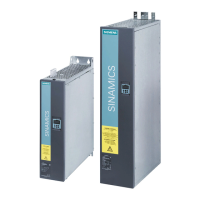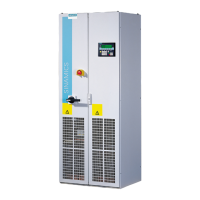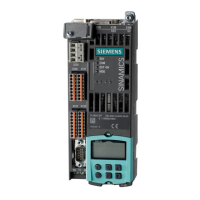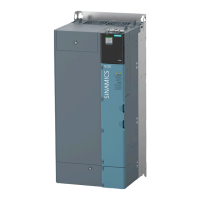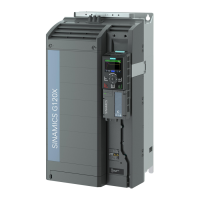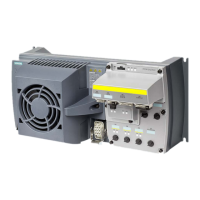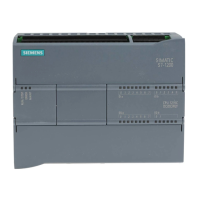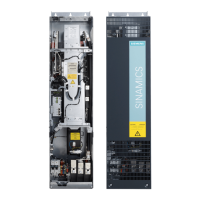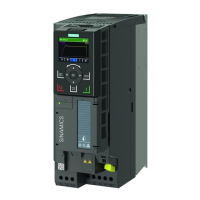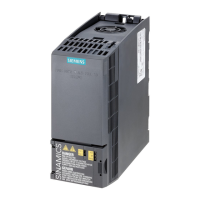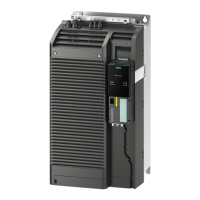12-pulse parallel connection
3.2 Configuration
12-pulse applications
16 Compact User Manual, 09/2015, A5E34871844H
Advantages and disadvantages of this configuration:
● Advantage: Lower current ripple
● Disadvantage: Each unit requires its own 12-pulse transformer
Prerequisites for the device
Transformer
12-pulse operation is achieved in the network by an additional winding system, electrically
swiveled by 30°, belonging to the supplying transformer. Here at least one of the two
converters (master or slave) of the 12-pulse system must be supplied via a galvanically
isolated voltage (isolating transformer) (see Figure 3-6 Application with three-winding
converter transformer (Page 17) and Figure 3-7 Application with isolation transformer
(Page 18)).
It is possible to select which of the two converters should be supplied by the voltage leading
or lagging by approx. 30° as required.
Signal connection via parallel interface.
The parallel interface cable between the converters should be as short as possible. The
permitted maximum cable length of 15 m should not be used if possible.
The total length of the bus cables for the parallel connector must not exceed 30 m (e.g.,
maximum 2 x 15 m with a master device with 2 slave devices), whereby the cables must
always be as short as possible. If several devices are connected in parallel, the master
device must be arranged in the center of the bus connection; the slave devices on either side
are distributed as evenly as possible.
Equipotential bonding must be provided and the shield must be connected to ground with a
large contact surface on either side.
All SINAMICS DCMs must have the same software version.
Since the instantaneous values of device output voltages differ due to the different phase
angle of the line infeed, decoupling via smoothing reactors must be provided upstream of the
parallel device connection on the DC voltage side.
Converter equipment which is connected to the line supply via a separate converter
transformer must be protected against overvoltages that can occur as a result of line-side
switching operations by means of overvoltage protection.
If the converter input is protected by means of open contact gaps during primary-side
transformer switching operations, no protective circuit is required at the converter input.
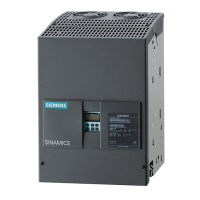
